
A CRM (customer relationship management) is a software that helps you manage your leads and customers throughout the sales cycle. So the moment a lead is generated through your marketing channels the CRM’s role is to help you
Interact with leads via phone calls, SMS, email and WhatsApp from within the application
Store all interactions in one central hub for easy accessibility and tracking
Automate manual repetitive tasks like sending follow-up messages and assigning leads to sales team
Track how your business is performing through metrics like lead conversion rate, revenue generated, number of closures, etc.
and much more! (to be discussed later)
The idea is, a business generates 100s of leads on a daily basis and carrying out all these activities manually or with the help of a spreadsheet is an absolute mess – data is lost, accessing the right information at the right time is a hassle and no one has any idea on the progress of the lead because you can’t track past interactions, at least not effectively.
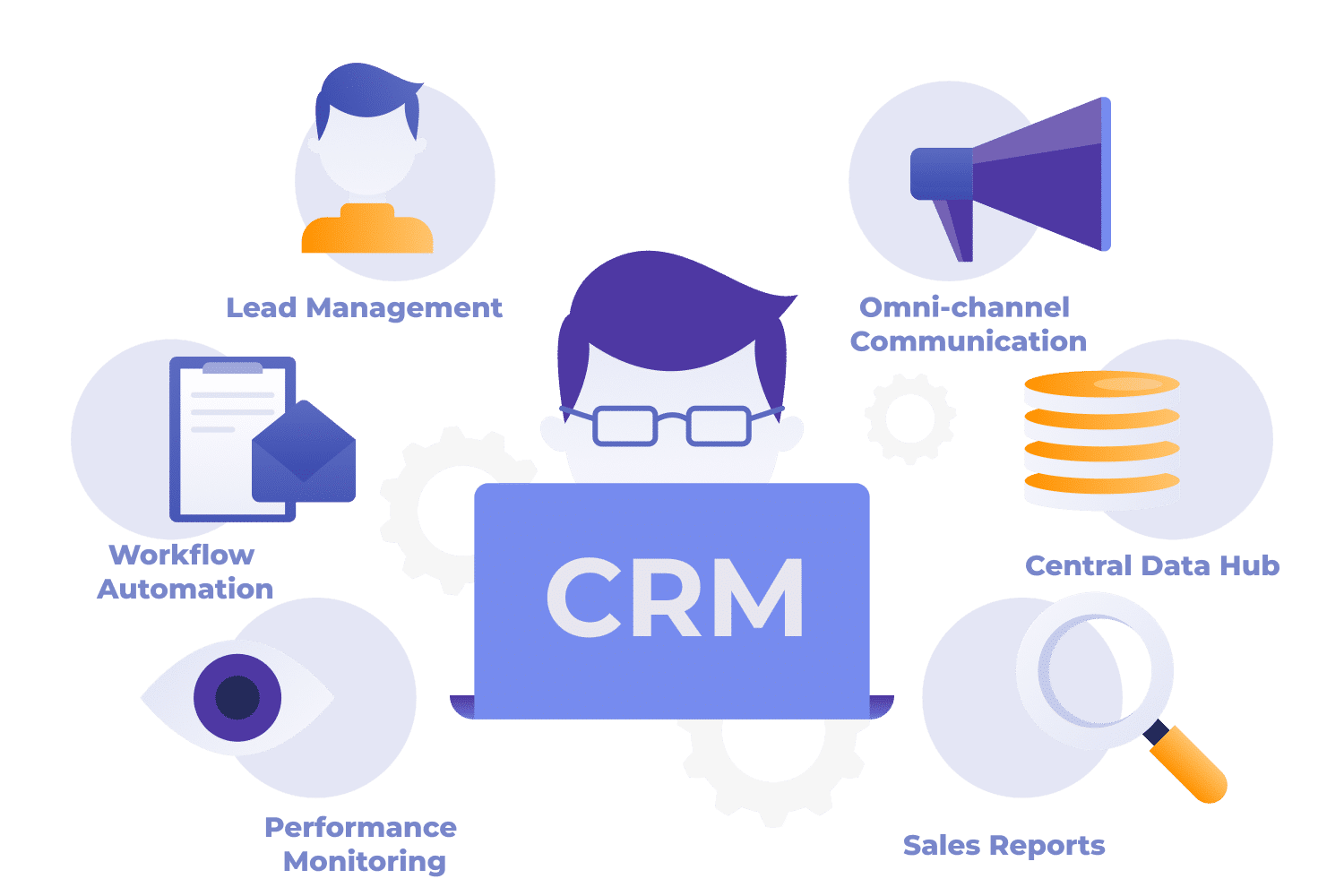
A CRM software is an end-to-end solution to all these problems – it helps you manage data effectively, track all customer interactions and assess how a business is performing — all from one dashboard.
It’s only natural that a software like that will boost your sales team’s productivity, streamline sales processes and help you scale your business. Some of the noted examples include Zoho, Telecrm, Hubspot, Salesforce and Pipedrive.
From startups to SMEs to MNCs, every business in every industry can benefit from a CRM system, simply because every company has leads and customers that buy their products and services.
So if you think that a small business or a startup with a small sales team doesn’t need one, you’re wrong. It’s even more important to build a system when you don’t have one. How else are you supposed to manage interactions, create custom sales pipelines, understand consumer behavior and grow your business? Through manual diaries or complicated Excel sheets? Definitely not.
Also, if you are worried that a CRM is costly, you should know that CRMs come in all shapes and sizes and most of them offer different plans to suit the needs of startups and small businesses.
A CRM helps sales teams ensure no lead slips through the cracks by organising all your leads in one place and tracking their journey through the sales funnel.
Sales reps can easily log calls, emails and meetings keeping a clear record of every interaction
Prioritisse leads based on their likelihood to convert with lead scoring and segmentation
Streamline the sales pipeline, ensuring you always know which deal needs immediate attention and which is ready to close
Track your performance with metrics like the number of closures, sales cycle duration and revenue generated
For sales teams, a CRM means less time spent on administrative tasks and more time doing what they do best — closing deals.
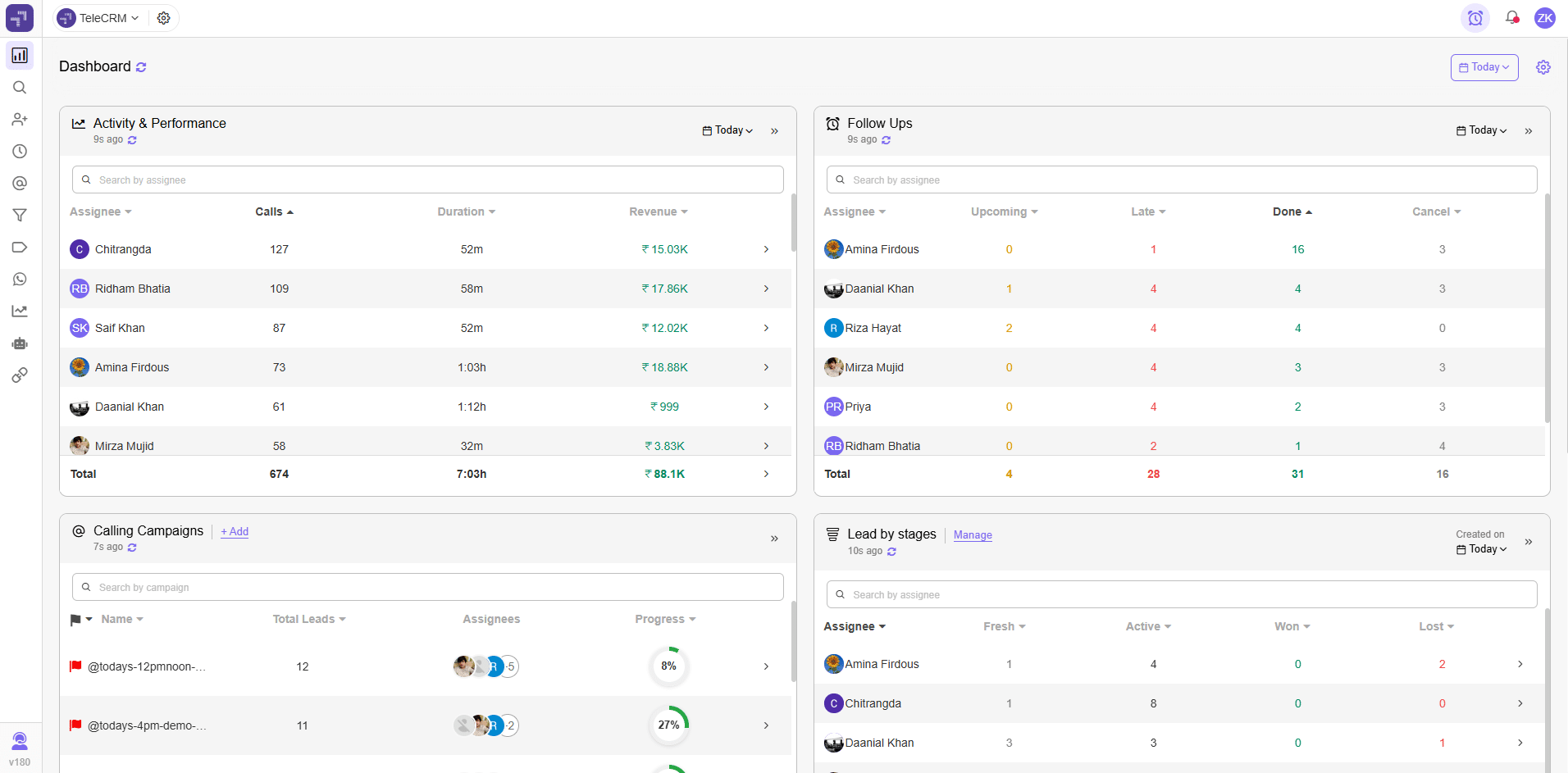
Marketers generate leads from multiple channels, including ads, social media, email campaigns and SEO. A CRM helps them keep track of everything in one place.
Measure the effectiveness of campaigns by analysing lead sources and conversion rates
Personalise marketing efforts with detailed customer profiles
Automate tasks like sending emails, scheduling follow-ups and nurturing cold leads
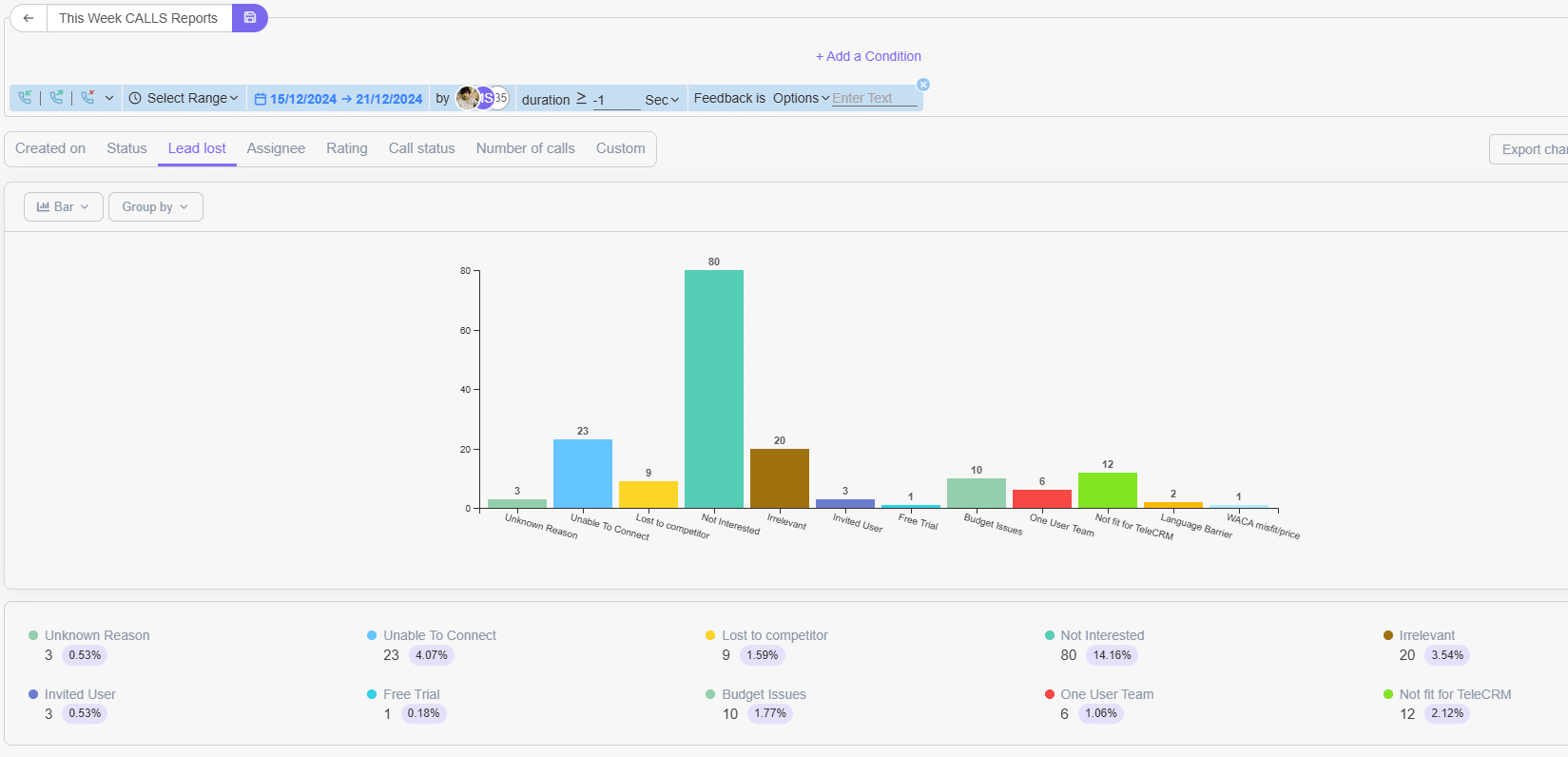
Customer retention is just as important as acquisition, and a CRM ensures you deliver top-notch service that keeps customers coming back.
Access a complete history of customer interactions, so you’re always prepared to address issues or queries
Resolve complaints faster by assigning them to the right team members automatically
Use customer feedback to improve products and services, creating a loyal customer base
With a CRM, your support team isn’t just solving problems — they’re creating experiences that turn satisfied customers into brand advocates.
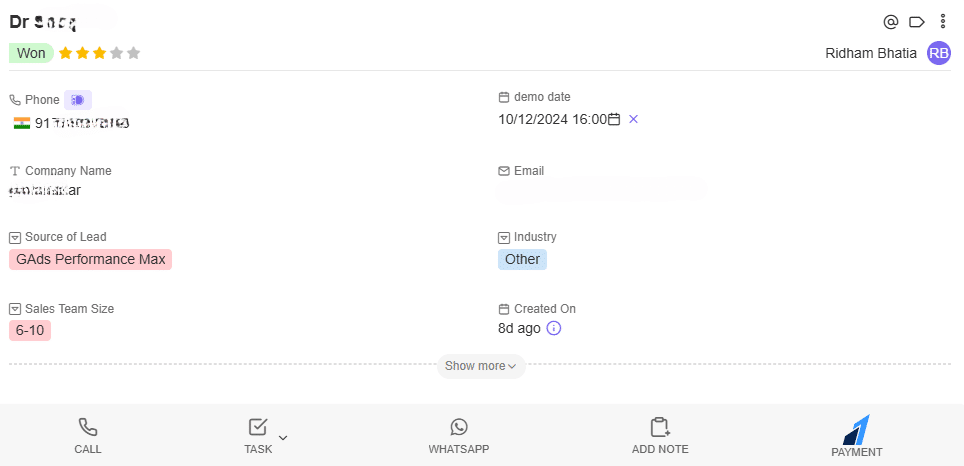
As a business owner, you’re juggling countless responsibilities — managing the team, driving growth and keeping customers happy. A CRM makes this easier by giving you a bird’s-eye view of your business operations.
Track sales performance and customer satisfaction with real-time dashboards
Analyse trends and identify growth opportunities through detailed reports
Manage tasks efficiently by automating repetitive activities and ensuring follow-ups are never missed
A CRM is not a one-and-done process, it performs in cycles:
Lead is generated, it is nurtured, the deal is closed or lost
Sales performance is evaluated
Necessary changes are made both on the sales and marketing end
As a result, new leads are generated and the cycle keeps on going
Here’s a walkthrough of exactly how a CRM functions with the help of its features:
Zero manual worries, complete automation and no headaches. That’s what a CRM does for you. It automatically captures and stores all the leads you generate through your marketing channels — ads, website, SEO, social media, email marketing, etc. So anytime a website visitor fills out a lead form, a new lead is created automatically within the CRM.
Also, if you already have a huge chunk of leads in an Excel file, you can bulk import the file into the CRM software without having to enter any data manually.
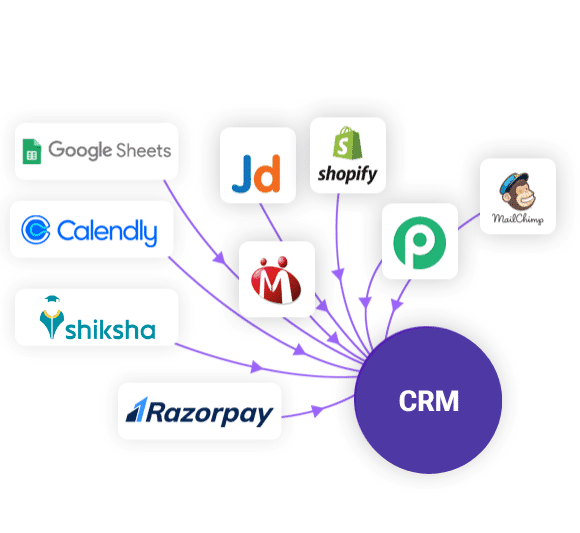
CRM software also automates the entire lead assignment process as well. So once a lead is generated, it is assigned to the respective sales reps in the ratio you define. The image down below will give you a better idea of how it happens:
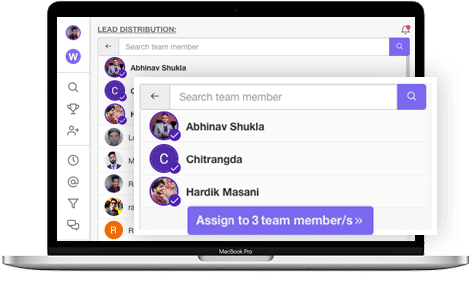
Closing deals isn’t easy — you’ve got to call leads, constantly follow up on them through more calls and messages, retarget them through campaigns and even then it’s not 100% sure that you’ll end up with a deal in hand. So all in all, great attention is needed to close a deal.
While a CRM doesn’t guarantee you closures, it does guarantee you great customer service through features like:
The most integral part of sales is calling leads. And as business owners, you know it can be very stressful at times. On top of that, mistakenly calling the wrong numbers due to manual dialling makes it even more frustrating.
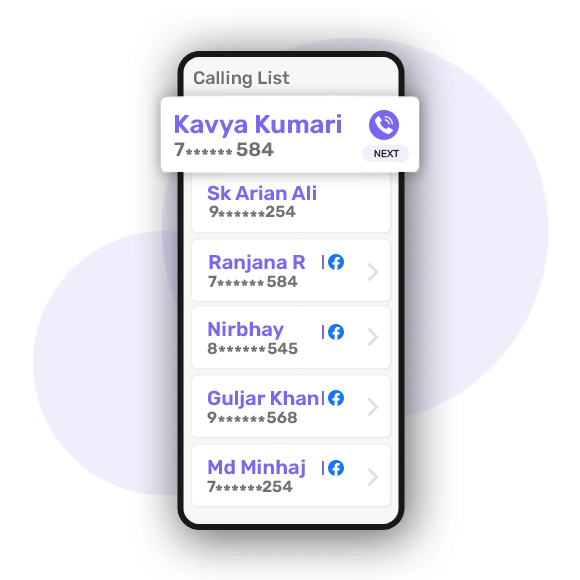
With a one-click dialer, all you have to do is click on ‘call’ and this CRM feature automatically dials the number for you. No manual entry, no errors and no time wasted.
It can not be stressed enough how important timely follow-ups are. No one buys your product or service on the first call. You’ll have to constantly send messages and make calls to close a deal.
A CRM software helps you follow up on time through automated follow-up reminders. So whenever it’s time to call, your sales reps will get an alert on WhatsApp that it’s time to call. This ensures that no follow-up is missed and no deal is lost.

In today’s world, WhatsApp is one of the most effective channels for communicating with leads. A CRM with WhatsApp Cloud API integration lets you send messages, share updates and even run drip campaigns directly from the platform. This means your team can use WhatsApp for real-time conversations while all interactions are tracked in the CRM.
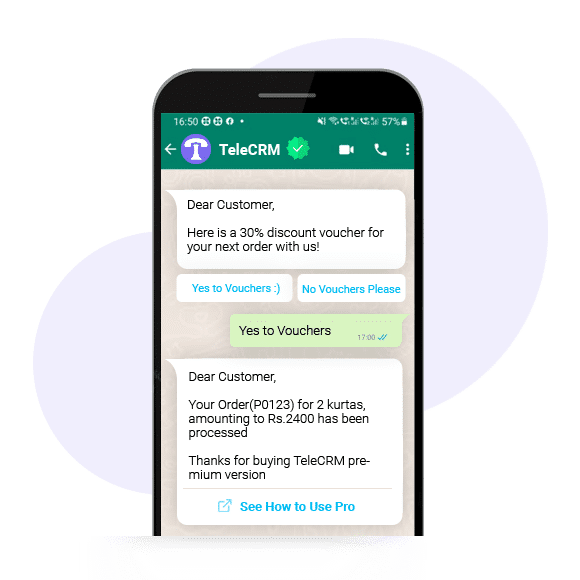
Every conversation, whether it’s a call, email or WhatsApp message, is valuable when building relationships. A CRM system keeps track of all these interactions in one central hub, giving you a complete history for every lead.
This ensures your team always has context, making it easier to personalise communication and avoid repetitive questions, which leads to a more professional and efficient customer experience.
Sometimes, one message isn’t enough to grab a lead’s attention. That’s where automatic message sequences come in. With a CRM, you can create a series of messages — via WhatsApp or email— that are sent at predetermined intervals. This ensures consistent communication with leads without requiring manual effort, keeping them engaged and moving them closer to conversion.
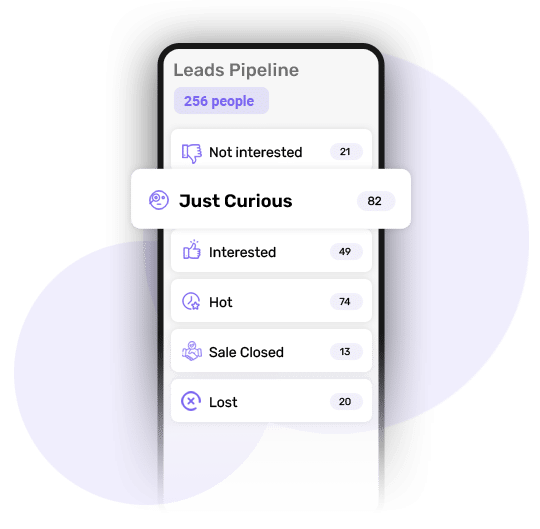
Every business has its unique way of managing leads and closing deals, and a CRM with a custom sales pipeline ensures your process fits like a glove. Instead of forcing you into a generic structure, the CRM allows you to define your own stages — whether it’s lead captured, demo scheduled, proposal sent or deal closed.
With a custom pipeline, you can:
Visualise the entire sales journey at a glance
Move leads between stages with a simple drag-and-drop feature
Identify bottlenecks by spotting which stage has the most leads stuck
This approach helps your sales team stay organised and focus their efforts where they’re most needed. It also ensures you have complete clarity on where each lead stands, enabling faster decision-making and more effective follow-ups. Over time, analysing your pipeline can reveal valuable trends, such as which stages are taking the longest or which deals are converting the most, helping you refine your strategies for maximum efficiency.
We have already discussed tidbits of what automation can do — automate follow-up reminders, lead assignment, drip sequence messages — but that’s not all! Workflow automation in a CRM goes far beyond just these tasks, acting as the backbone of your operations to ensure everything runs seamlessly.
For instance, when a new lead is generated, the CRM doesn’t just assign it to a sales rep — it can also send a personalised welcome email or a WhatsApp message, add the lead to a specific pipeline stage and set up a follow-up reminder, all in one go. Similarly, if a deal moves to the next stage, automated alerts can notify the team or trigger actions like scheduling a demo or sending a proposal.
This kind of end-to-end automation saves countless hours, eliminates human errors and ensures consistency across all customer touchpoints.
When it comes to improving your business, data is everything. A customer relationship management software provides performance reports and custom dashboards that give you a real-time snapshot of how your sales, marketing and customer support efforts are performing. These tools take the complicated reports and lengthy processes out of decision-making and replace them with actionable insights.
With performance reports, you can:
Track sales metrics like conversion rates, revenue and deal closure times
Monitor individual and team performance, identifying top performers and areas for improvement
Understand lead sources, so you can focus on channels bringing the best ROI
But that’s not all!
You can even generate custom reports to track any metric of your choice. All you have to do is create relevant lead fields and that’s it!

Within the sales department, there are typically different hierarchies — an admin who oversees everything, a sales manager responsible for guiding the team and sales reps who handle the groundwork. A CRM like TeleCRM caters to these hierarchies by allowing you to assign role-based access to information.
For example, a sales manager can view team-wide performance and individual metrics, while sales reps are restricted to their own data. This ensures that sensitive information, such as how many calls or deals other team members are handling, remains secure and accessible only to the right people. This feature ensures that information is secured in the hands of the people you trust.
The type of CRM depends on specific use cases but most CRMs offer all the functionalities but at their core have one specific function that makes them stand out. Some of the common types are:
| Type of CRM | Purpose | Key features | Who it’s for |
|---|---|---|---|
| Operational CRM | Simplifies and automates customer-facing processes | Sales management Marketing automation Campaign scheduling Ticket management, Workflow automation | Startups, small businesses, and growing sales teams focusing on customer interactions |
| Analytical CRM | Collects and analyses customer data for actionable insights | Centralises data from multiple channels Customer segmentation Trend analysis metrics ROI tracking and reporting | Businesses looking for data-driven strategies and insights to boost sales and marketing efforts |
| Collaborative CRM | Ensures seamless communication across departments | Unified customer view: Feedback sharing Team collaboration Partner/vendor collaboration | Businesses with multiple teams (sales, marketing, support) working together towards common goals |
| Mobile CRM | Enables access to CRM data on the go | Access CRM from smartphones/tablets- Update leads and data in real-time | Sales teams, field executives, or businesses requiring on-the-move operations |
| WhatsApp CRM | Integrates WhatsApp with CRM for seamless communication | Manage customer interactions via WhatsApp Track WhatsApp conversations within CRM | Businesses relying on fast, personal communication (e.g., small businesses, startups) |
| Strategic CRM | Focuses on long-term customer relationship development | Customer segmentation for targeted campaigns Tailor strategies to customer behaviours and needs | Businesses prioritising customer retention and long-term loyalty |
| B2C CRM | Tailors customer strategies to meet individual consumer needs | Personalised communication Centralised data management | B2C businesses focused on improving customer experiences and driving customer loyalty. |
A CRM helps you maintain a personal touch, even as your customer base grows. By storing every interaction, preference and purchase history, it allows you to personalise every conversation.
For example: Imagine a customer calls your team with a query and your sales rep instantly sees their last purchase and the issue they reported last month. Instead of repeating the same questions, your team can jump straight to providing solutions, making the customer feel valued and understood.
With automated reminders and a clear view of your sales pipeline, a CRM ensures no lead is forgotten.
For example: A lead fills out a form on your website showing interest in a product. The CRM not only assigns the lead to a sales rep but also schedules a follow-up call for the next day. The sales rep gets an alert and is fully prepared for the conversation, increasing the chances of closing the deal.
CRMs eliminate repetitive tasks, streamline communication and keep the team focused on high-value activities.
For example: Your sales manager uses the CRM to assign leads based on interest level while automating follow-up messages for cold leads. The team no longer wastes time sorting through who should handle which lead, allowing them to focus on closing deals instead of logistics.
With performance reports and dashboards, you can track progress, identify bottlenecks and make data-driven decisions.
For example: At the end of the month, your CRM shows that 70% of deals are stuck in the “Proposal Sent” stage. This insight helps you pinpoint the issue — maybe the proposal template needs improvement or follow-ups need to be more aggressive. With this clarity, your team can adjust strategies and boost conversions in the next cycle.
A CRM acts as a central hub, ensuring that everyone — sales, marketing and support — has access to the same information.
For example: A marketer launches a new campaign and generates 200 leads. The CRM automatically shares these leads with the sales team while tracking which leads convert. Meanwhile, the support team can see which customers came from the campaign, ensuring they deliver a consistent brand experience.
Keeping customers is just as important as acquiring them. A CRM helps you anticipate their needs, address issues proactively and keep them engaged.
For example: A customer hasn’t purchased anything in six months. The CRM flags this inactivity and triggers a personalised email offering a discount or a new product recommendation. This outreach brings the customer back into the sales funnel, boosting retention rates.
As your business grows, a CRM grows with you. It adapts to handle more leads, customers and team members without compromising efficiency.
For example: When your team grows from 5 to 20 members, the CRM lets you assign roles, set permissions and organise workflows effortlessly. You maintain the same level of efficiency, even as the workload triples.
Here’s a clean and structured table summarising all the CRM types discussed in your blog. This table will serve as a quick reference for readers to compare the different CRM types and identify the one that best suits their business needs.
While both ERP and CRM are critical software tools for businesses, they focus on different areas of business operations. Here’s a quick comparison table to give you an idea:
| Aspect | CRM (customer relationship management) | ERP (enterprise resource planning) |
| Purpose and focus | Focuses on managing customer interactions and improving relationships. | Focuses on managing and automating back-office operations like finance, HR and inventory. |
| Core features | Lead management, sales tracking, marketing automation, customer support tools and communication tracking. | Inventory management, order processing, financial management, procurement, HR and business analytics. |
| User base | Sales, marketing and customer support teams. | Finance, HR, operations and supply chain management departments. |
| Objective | Increase customer satisfaction, drive sales and improve customer retention. | Streamline business operations, reduce costs, and improve internal efficiency. |
| Integration | Can integrate with ERP systems for seamless customer and internal data flow. | Integrates with CRM systems to provide a holistic view of both customer and internal operations. |
| Focus | Customer-centric (front-end of business). | Enterprise-centric (back-end of business). |
The cost of a CRM can vary significantly depending on the features, size of your team and the level of customisation required. It typically ranges from free for basic plans to hundreds of dollars per user for enterprise-level solutions.
Many CRMs offer free or low-cost plans designed for startups or small businesses. These plans often include essential features like lead tracking, contact management and basic reporting, making them ideal for businesses with minimal requirements.
As your business scales, mid-tier CRMs provide advanced features like workflow automation, custom pipelines and detailed analytics. These plans generally cost between $10 and $50 per user per month, offering excellent value for growing teams.
For larger companies with complex needs, enterprise-level CRMs offer features like AI-driven insights, advanced customisation and integrations with other tools. These solutions often cost between $50 and $200 per user per month or more, depending on the level of functionality required.
While subscription costs are the primary expense, you may also need to budget for implementation, onboarding, training or add-ons for specific features like third-party integrations.
CRMs come in a wide range of price points, from free plans to enterprise-level solutions. Decide how much you’re willing to invest and focus on options that provide the best value within your budget.
As your business grows, your CRM should grow with you. Look for a solution that offers the flexibility to add users, features and integrations as your operations expand.
A CRM is only effective if your team uses it consistently. Choose a platform with an intuitive interface, simple navigation and minimal learning curve to ensure smooth adoption.
Your CRM should work seamlessly with the tools you already use, like email platforms, marketing software or accounting systems. Check if the CRM integrates with your existing tech stack to avoid workflow disruptions.
Every business has unique processes. A CRM that allows you to customise pipelines, reports and workflows will better align with your operations and deliver maximum value.
Most CRMs offer free trials or demo versions. Use this opportunity to explore the platform, test its features and evaluate how well it fits your business needs before committing.
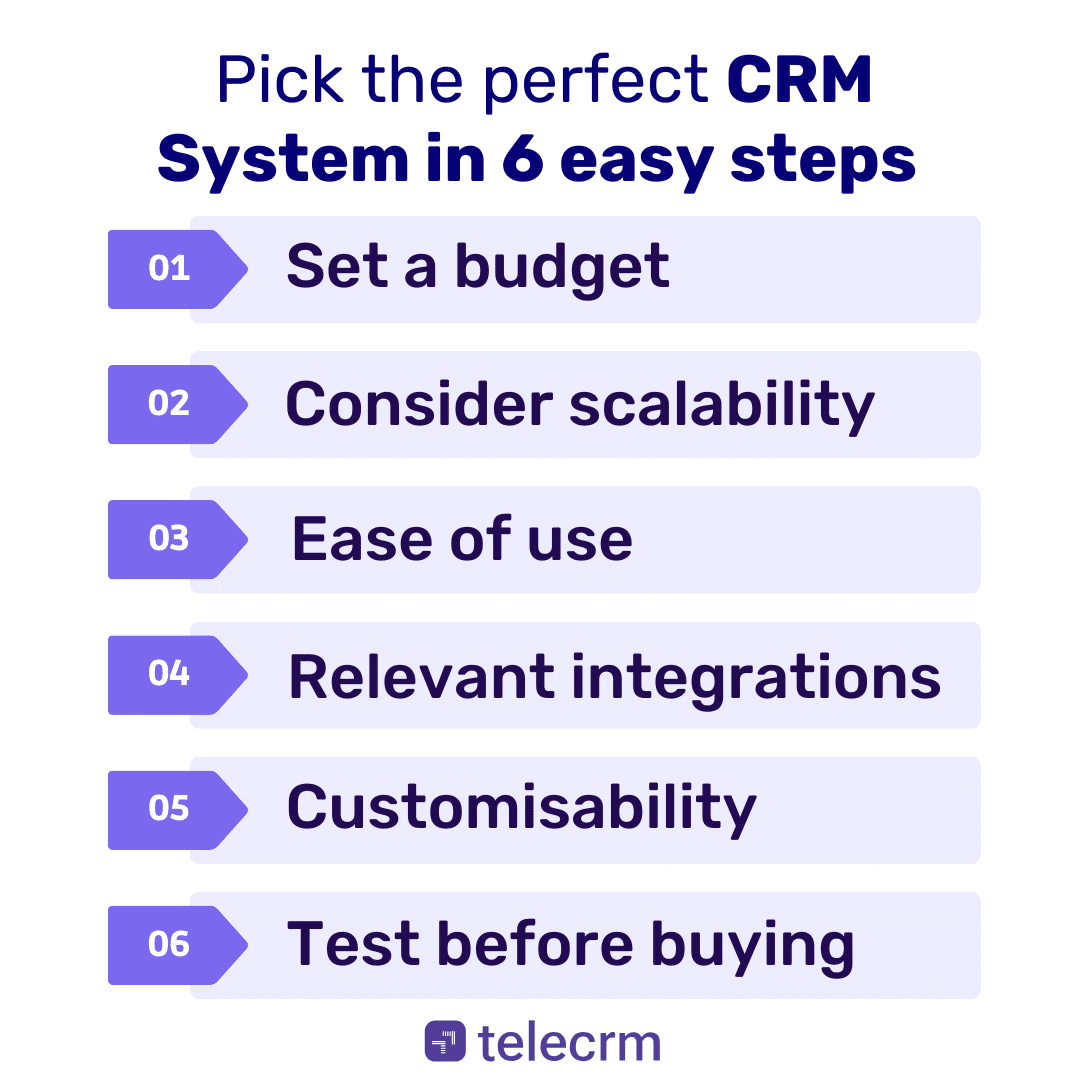
The CRM market is filled with solutions tailored to businesses of different sizes and needs. To make your choice easier, here’s a breakdown of the best CRM software based on business size:
For small businesses and startups, affordability, ease of use and basic features are key. These CRMs are designed to help you get started without overwhelming you with complexity.
HubSpot CRM: Known for its user-friendly interface, HubSpot’s cloud CRM offers a robust free plan that includes lead capture, email tracking and basic analytics
Telecrm: Tailored for SMEs and startups with ease of use and telecalling use cases in mind, Telecrm focuses on automating follow-ups, managing leads and simplifying communication via calls, WhatsApp and SMS
Pipedrive: A visually intuitive CRM that focuses on sales pipeline management, offering custom workflows, automation and integrations with tools like Slack and Trello
Salesmate: Provides powerful automation, email campaigns and reporting features, making it ideal for businesses scaling their sales and marketing operations
Freshsales by Freshworks: A feature-rich CRM solution that includes AI-powered insights, lead scoring and omnichannel communication tools, all at a reasonable price point
Enterprises need CRM tools that can handle complex workflows, large volumes of customer data and multiple teams across regions. These solutions offer advanced customisation, analytics and scalability.
Salesforce: A market leader in enterprise CRMs, Salesforce offers a highly customisable platform with AI-driven insights, advanced sales forecasting and integrations for almost every tool imaginable.
Microsoft Dynamics 365: Combines CRM and ERP capabilities, making it ideal for enterprises that want a complete business management solution.
Zoho CRM: Offers a free plan for up to three users with essential features like contact management, lead tracking and basic reporting. Paid plans are budget-friendly and highly scalable.
SAP CRM: Known for its robust functionality, SAP CRM platform is suitable for large-scale businesses requiring extensive customisation and industry-specific solutions.
A CRM is an end-to-end customer relationship management software. We have already seen the features and the benefits. Now it’s time for you to take action!
Browse through the available options, compare their plans, make use of free demos or trials and then make a decision. Or you can save yourself the trouble and consider Telecrm, an Indian telecalling and WhatsApp-based CRM with features like one-click dialer, lead management, workflow automation, customisation and much more!
So what are you waiting for? Book a demo or visit our homepage now!


© Copyright 2025 Telecrm.in - All Rights Reserved • Privacy Policy • T&C
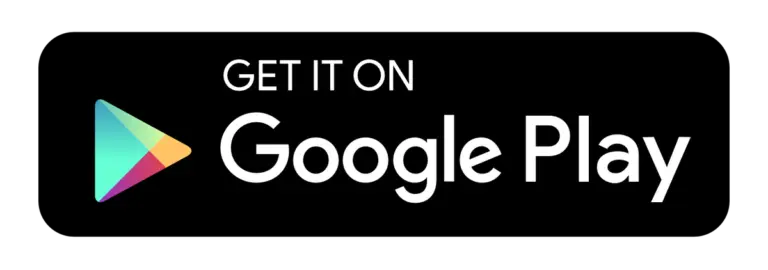

© Copyright 2025 Telecrm.in - All Rights Reserved • Privacy Policy • T&C